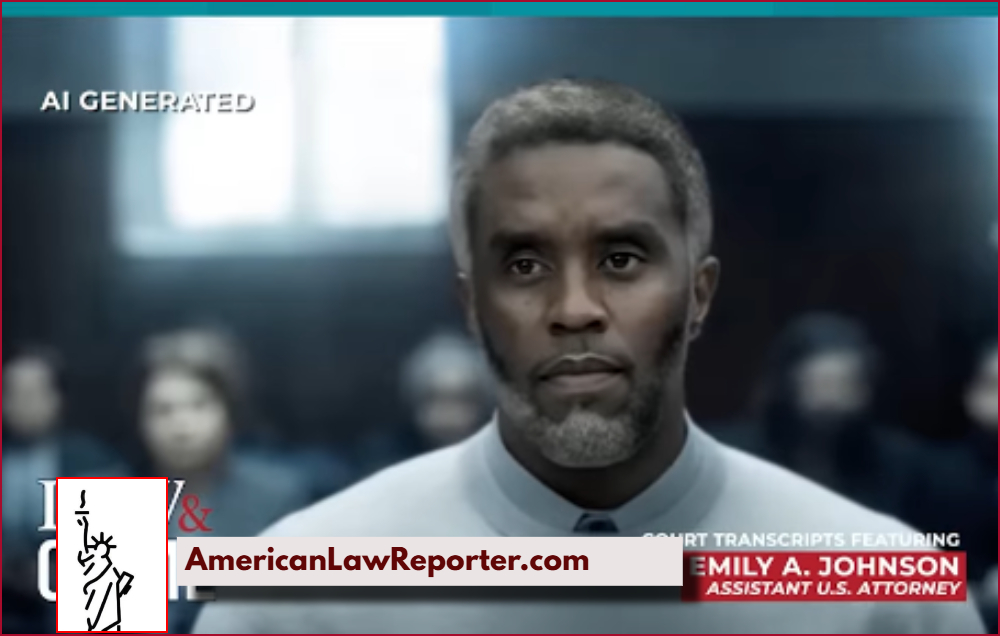In a closely watched federal trial that spanned nearly two months, music mogul Sean “Diddy” Combs was acquitted of the most serious charges of sex trafficking and racketeering but convicted on two counts of transportation to engage in prostitution, resulting in a potential sentence of up to 10 years per count, though sentencing guidelines suggest a likely sentence of 51 to 63 months.
On July 2, the 12-member jury reached a mixed verdict in the federal sex crimes case brought against Combs, 55, whose alleged conduct had become emblematic of the #MeToo movement’s reach into the music industry. The decision marks a legal inflection point not only for Combs but also for federal prosecutors whose ability to dismantle his empire through asset forfeiture was significantly curtailed by the acquittals.
Bail Denied: Public Safety Trumps Celebrity Status

U.S. District Judge Arun Subramanian denied Combs’ motion for $1 million bail, citing the “ongoing danger” the defendant poses to the community. The judge referenced evidence of longstanding abuse, including admissions of domestic violence and graphic testimony by two primary witnesses: singer Casandra “Cassie” Ventura Fine and an anonymous accuser known as “Jane.”
Defense attorney Marc Agnifilo argued for Combs’ release on grounds that the more serious counts were dismissed and proposed strict travel and drug testing conditions. However, Subramanian ruled that the defense failed to meet the standard under the Bail Reform Act, emphasizing a June 2024 incident in which Combs allegedly choked and dragged Jane—a claim the defense tried to reframe as self-defense, which prosecutors called “insulting” and “brazen.”
The court will hold a remote hearing on July 8 to discuss the expedited timeline for sentencing.
Why the Jury Convicted on Prostitution Charges but Not Trafficking

The jury’s verdict reflects a legal distinction between coercion-based trafficking and commercial sex acts involving transportation. Prosecutors introduced evidence that Combs flew sex workers across state lines to participate in “freak offs”—highly orchestrated sexual events involving drugs and voyeurism. Although sex workers testified they were paid and not physically forced, the transportation of individuals for the purpose of prostitution met the legal threshold under 18 U.S. Code § 2421.
Conversely, jurors likely found insufficient evidence to prove beyond a reasonable doubt that Combs coerced or forced women into sex acts, leading to his acquittal on sex trafficking charges under 18 U.S. Code § 1591, which requires a higher burden of proof related to force, fraud, or coercion.
Impact on Civil Litigation and Asset Seizure
Combs still faces more than 80 civil lawsuits, most alleging rape, trafficking, or other sexual misconduct. His lead defense attorney, Teny Geragos, framed the partial acquittal as a repudiation of those suits, stating, “He has not sexually assaulted anybody… certainly not sex trafficked anybody.”
But plaintiffs’ attorney Tony Buzbee, who represents the majority of civil accusers, responded sharply: “Diddy dodged a big bullet today. But that doesn’t end the saga.” Buzbee emphasized that the criminal trial focused narrowly on two women, while the civil suits deal with separate acts under state laws—many of which may not be barred by the acquittal.
Former DOJ official James Trusty noted the acquittal on racketeering and trafficking limits the government’s ability to pursue forfeiture of Combs’ real estate and business assets, as they would need to directly tie them to the prostitution convictions.
Cassie Speaks Through Counsel: ‘He’s Finally Been Held Responsible’
Ventura Fine’s attorney, Douglas Wigdor, praised the jury’s partial conviction and thanked his client for breaking the silence. In a public statement, Wigdor asserted that Combs remains a “danger to victims and the community”, reinforcing his call for continued detention.
“This entire criminal process started when our client Cassie Ventura had the courage to file her civil complaint in November 2023,” Wigdor said. “She paved the way for a jury to find him guilty.”
Looking Ahead: Sentencing, Civil Suits, and Legacy
Combs’ legal team has asked for an expedited sentencing date, which the judge tentatively set for October 3 at 10 a.m., but left the door open for an earlier proceeding.
Despite being acquitted of life-threatening charges, Combs faces federal prison time—likely several years—and the weight of civil litigation that could stretch on for years. The federal court has already received dueling memoranda about sentencing and bail, and prosecutors are expected to continue pursuing aggressive penalties, citing “a yearslong pattern of abuse and violence.”
In a trial that bridged celebrity culture, trauma, and legal nuance, the message from the courtroom is clear: partial acquittal does not equal vindication.

